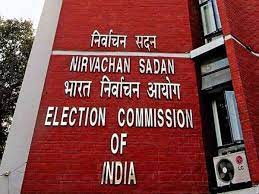The Model Code of Conduct (MCC) has come into effect from Saturday after the Election Commission of India announced the dates for elections to the Lok Sabha and four state assemblies, with Chief Election Commissioner Rajiv Kumar asking all political parties and their leaders to strictly adhere to the poll code.
As the tenure of the 17th Lok Sabha is scheduled to end on June 16, 2024, polls for its 543 seats must be held prior to it. The general election for 543 Lok Sabha seats will be held in seven phases from April 19, with counting to be held on June 4. Elections to State legislatures of Andhra Pradesh, Arunachal Pradesh, Odisha and Sikkim will also be held in the same period
According to the set of guidelines issued by the EC (Election Commission), no party or candidate shall indulge in any activity which may aggravate existing differences or create mutual hatred or cause tension between different castes and communities, religious or linguistic.
It lists out the dos and don’ts regarding general conduct, meetings, processions, conduct of parties and their candidates on polling day, polling booth, observers, party in power and guidelines on election manifestos.
According to the guidelines, all parties and candidates shall avoid scrupulously all activities which are “corrupt practices” and offences under the election law, such as bribing of voters, intimidation of voters, impersonation of voters, canvassing within 100 meters of polling stations, holding public meetings during the period of 48 hours ending with the hour fixed for the close of the poll, and the transport and conveyance of voters to and from polling station.
The poll body said that organizing demonstrations or picketing before the houses of individuals by way of protesting against their opinions or activities shall not be resorted to under any circumstances.
No political party or candidate shall permit its or his followers to make use of any individual’s land, building, compound wall etc., without his permission for erecting flag-staffs, suspending banners, pasting notices, writing slogans etc.
Political parties and candidates shall ensure that their supporters do not create obstructions in or break up meetings and processions organized by other parties. Workers or sympathisers of one political party shall not create disturbances at public meetings organized by another political party by putting questions orally or in writing or by distributing leaflets of their own party. Processions shall not be taken out by one party along places at which meetings are held by another party. Posters issued by one party shall not be removed by workers of another party.
As soon as the poll code comes into effect, the party in power be it at the Centre or in the State or states concerned, shall ensure that no cause is given for any complaint that it has used its official position for the purposes of its election campaign.
According to the Model Code of Conduct, Ministers shall not combine their official visit with electioneering work and shall not also make use of official machinery or personnel during the electioneering work. Also Government transport including official aircraft, vehicles, machinery and personnel shall not be used for furtherance of the interest of the party in power.
Ministers and other authorities shall not sanction grants or payments out of discretionary funds from the time elections are announced by the Commission; and from the time elections are announced by Commission, Ministers and other authorities shall not announce any financial grants in any form or promises thereof; or (except civil servants) lay foundation stones etc. of projects or schemes of any kind; or make any promise of construction of roads, provision of…














